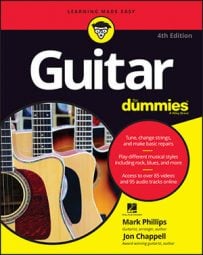In the not too distant past, a new guitar's cost was based on its list, or retail, price (set by the manufacturer), which the retailer then discounted to the selling price, or the actual amount you, the buyer, paid.
Needless to say, the list price was much higher than the discounted price, from several hundred to even a couple thousand dollars more, especially if you were dealing with a high-end instrument. And the discount varied according to the customer and the policy or the whim of the individual retailer.
But the old pricing method, where the retailer advertises the list price along with his discount selling price, is almost entirely obsolete. Much more common now is to see just the vendor's advertised selling price. This practice encourages the retailers to offer the lowest price they can right at the outset (without forcing the customer to negotiate for it), in order to stay competitive.
You may still find some variation in price for the same instrument among large retailers and between large and small retailers (who often can't offer a large discount because they don't deal in high-volume inventories). But pricing for new guitars tends to be fairly consistent.
If you're at all unsure whether you're getting the lowest price, you can always ask the salesperson, "Is this the best you can do?" or "Is this the absolute lowest price? I saw this same make and model online from Uncle Bubba's Fly-by-Night Guitar Emporium for 75 dollars less." Many retailers have a price-matching policy and honor any legitimate competitive offer, rather than lose a sale to a competitor. But if the retailer can't move any further on the price, you can accept the terms or try to do better.
If you're thinking about buying a used guitar, from a private owner in a newspaper ad or an online service like Craigslist or eBay, be very cautious when assessing the quality and condition of the guitar, especially if photos are the only things you have to go on (which is almost always the case). Also, be aware that most posted prices (also known as asking prices) from private owners are too high. Be prepared to dicker to get a better price for such a guitar — even if it's exactly what you're looking for.
After you feel that you have satisfactory answers to the preceding questions, proceed to the second prong of your guitar-purchasing attack plan: gathering information on the specific guitar for you.

